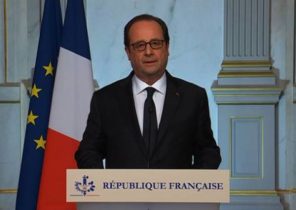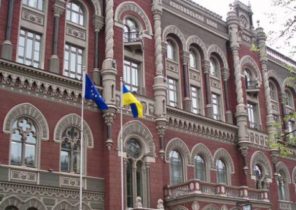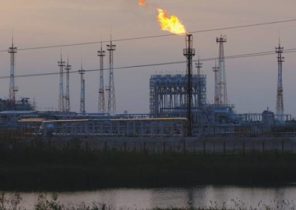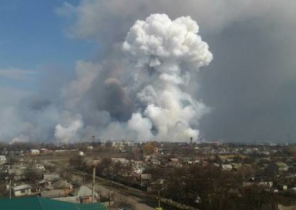New York- When the generals should refuse the execution of presidential orders that they consider unconstitutional? At what point do the police accept responsibility for delegitimiziruet the consequences of racism? Why journalists should really be more important than the appearance of neutrality? The circumstances under which the words or images used intentionally, despite the obvious facts, lose the right to the protection of the law?The problems facing the United States, gives some guidance. General mark Milly, the representative of the Supreme military command of America, rightly apologized for the participation in the pompous walk of the President of Donald trump at the Lafayette square in Washington. Moreover, to expel the peaceful protesters, used tear gas and rubber bullets — trump clearly used the army as a pawn in domestic politics.
Similarly, there is reason to agree with the use of the word “murder” the police chief of Detroit James Craig to describe the killing of Minneapolis police George Floyd, unarmed black men. The officer is at fault, and three of his colleagues must have known that squeezing the knee of the neck of humans for more than eight minutes, enough for him to suffocate. Since it is logical to conclude that the intent of the act, it is logical to accuse of murder (subject to the consent order, that life is black means something).
Shortly thereafter, The New York Times published an editorial, U.S. Senator Tom cotton, a staunch supporter of trump, calling for the Federal government to apply the “Act of rebellion” from 1807 and to use the armed forces to suppress public protests. The editorial Board of the newspaper subsequently refused the review, putting the blame for the decision to publish it on lack of fact checking due to the fact that cotton was falsely described the protesters as anarchists and “criminals nihilists.”
Dissemination of disinformation is not to be confused with the protection of the “diversity of viewpoints”. Those who argue that with speeches it is better to fight with words, is probably right, assuming we are talking about a real expression of opinions or ideas. With the help of words had exposed the attempt of the cotton to mislead the readers that questioned the decision of the Times to publish his article. But in response to speech or images that serve only to incite violence or other barriers to honest communication, words are useless.
Disguised and unnoticed political misinformation, visual “fake deep” and malicious hoax every day in many breed in Facebook, Twitter and other social networks. Democracy needs to be able to protect yourself from using words or images that deliberately sow confusion and mistrust, to stop public debate on this topic. The U.S. Supreme court ruled that the protection of the First amendment to the Constitution does not apply to statements that threaten imminent violence. This limitation should apply to “combat teams” and the words-noise, which destroy the essential conditions of communication itself.
All of these recent challenges to democratic governance have a common denominator — dishonesty. The order violates the basic principles of self-government is dishonesty. Racism in policing is dishonesty. Neglect on the part of the independent press is the duty to tell the authorities the truth is dishonesty. To sow confusion and mistrust through the deliberate spread of misinformation is dishonesty. To politicize an independent Agency — dishonesty.
Dishonesty on such a scale threatens to lock, the constitutional mechanisms available to restrict excessive concentration of powers in any one branch of government. It also creates a threat of destruction of the social contract in a broader sense, undermining the common democratic values that underpin the legitimacy of the state.
When the President calls on the army to suppress dissent, the people — the main source of state power become enemies of the state. Similarly, when the President denigrates journalists and threatens them, a free press is the best guardian “each of our rights,” as said by James Madison, becomes, according to trump, “enemy of the people”.
Finally, when the Executive uses the Ministry of justice to reward political allies (such as former adviser to trump Michael T. Flynn and Roger stone) and expel those considered enemies (like ex-FBI Director James Comey and U.S. attorney Jeffrey S. Berman), equality before the law and the rule of law also go into the category of enemies. And when the political process of appointing Federal judges puts loyalty to the chief Executive on the above fidelity to the law and commitment to impartial decision-making, lost the credibility of the entire judicial branch.
The longer suppressed this division into friends and enemies, the deeper the crisis of legitimacy. It is therefore important to put an end to the dishonesty of the government. But merely identifying abuses of power is not enough. Defenders of democracy must also provide a significant collective action in response to any violation.
Mass protests last resort of the democratic resistance. America’s founders understood this. That is why the “right of the people peacefully to assemble, and to petition the government about the complaints” is one of the first guarantees in the “bill of rights” of the United States.
If the Republic cannot, or simply do not take the trouble to protect themselves from blatant dishonest action, its days are numbered. Perhaps the price of freedom really is eternal vigilance, but tyranny is failing only when a sufficient number of citizens willing to resist it. Americans must continue to boldly protect and strengthen the democratic institutions that affect their freedom as many of them did throughout the last months.







